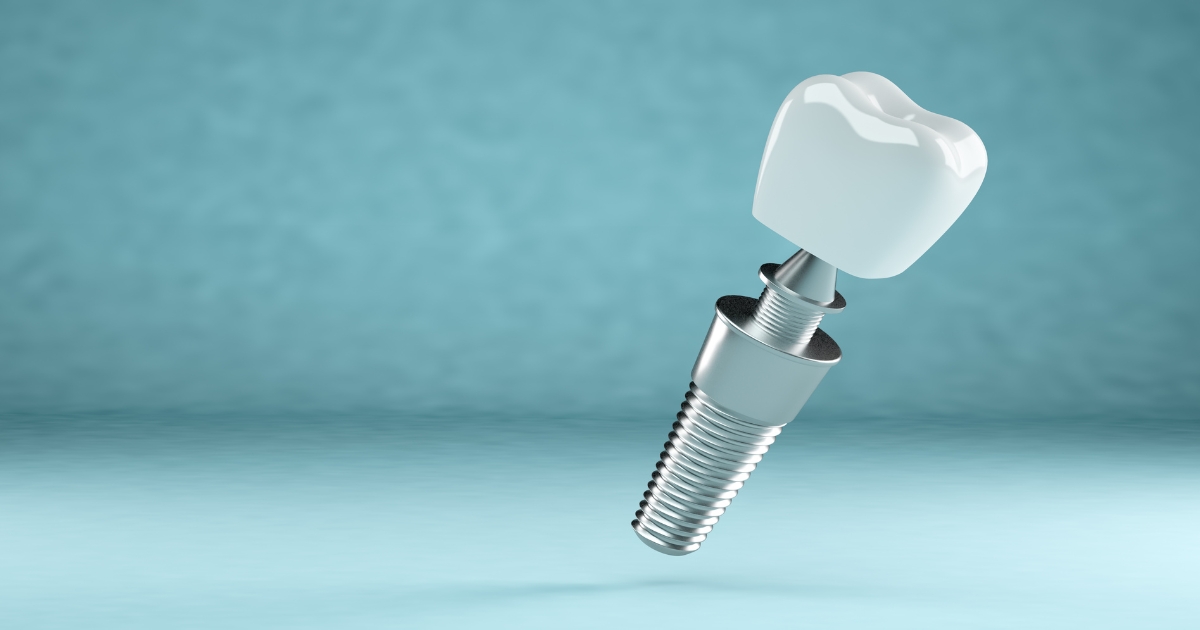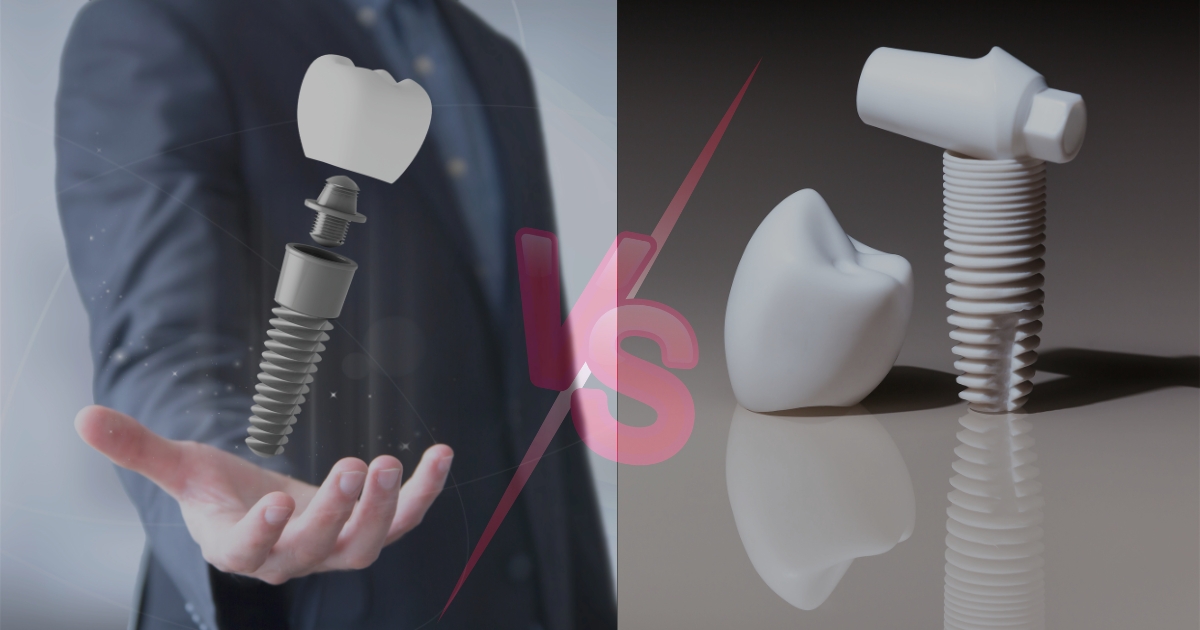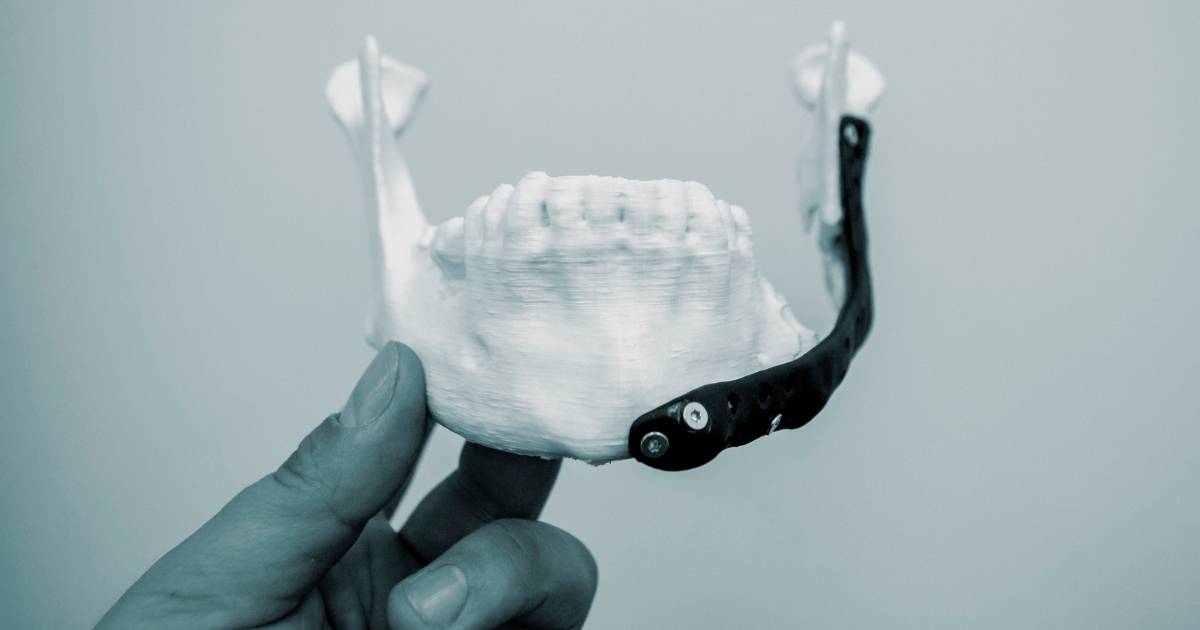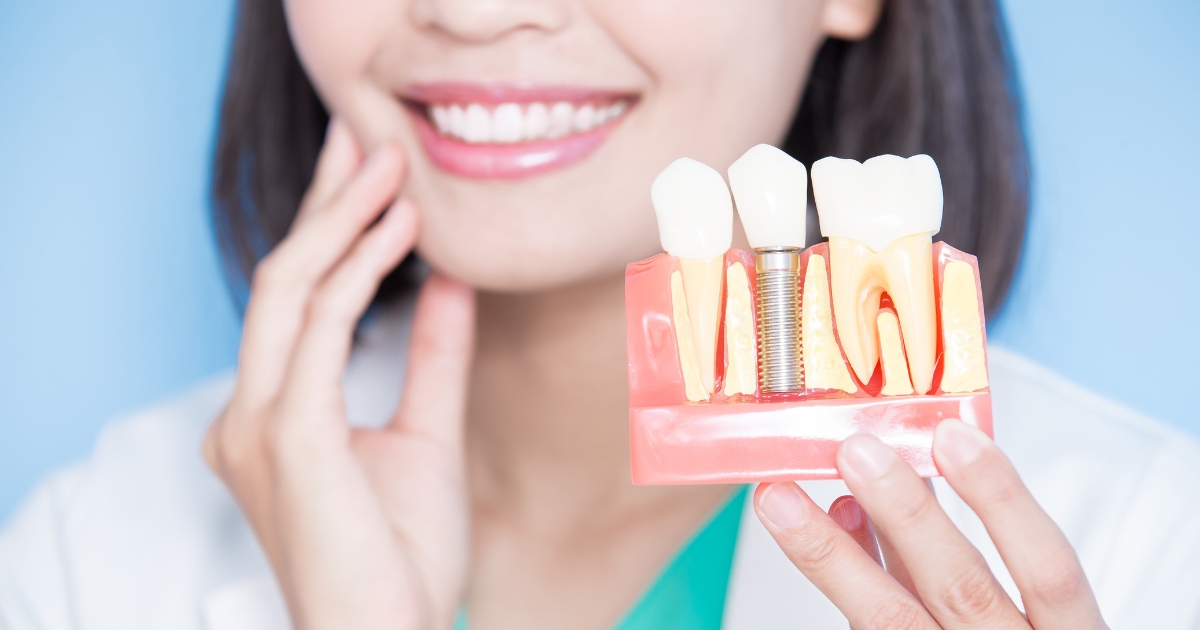Titanium vs. Zirconia Implants
Dental implants offer a wide variety of options. Among these, the most popular implant materials are titanium and zirconia, each possessing unique characteristics and potential advantages.
This article examines the pros and cons of Titanium vs. Zirconia Implants, offering clarity on the superior option based on individual circumstances.
What Are The Primary Differences Between Titanium And Zirconia Implants?
Titanium implants have been used for decades by dentists in Dubai and are well-known for their durability and biocompatibility. Zirconia, on the other hand, is a newer material in the world of dental implants in Dubai but offers a metal-free alternative with a natural white colour. Both materials come with their own benefits and limitations.
Feature | Titanium | Zirconia | Ideal For |
Material | Metal alloy | Ceramic | Titanium- High-stress areas; Zirconia- Aesthetic zones |
Colour | Metallic grey | White | Zirconia- Anterior teeth |
Conductivity | Conducts temperature | Insulator | Titanium- Posterior teeth |
Biocompatibility | High | High | Both- Most dental conditions |
History in Dentistry | Longer (several decades) | Shorter (a few decades) | Titanium- Proven track record |
Risk of Allergy | Low (but present) | Virtually nonexistent | Zirconia- Metal-sensitive patients |
The table above provides a direct comparison between titanium and zirconia implants across various features, from material type to historical usage in dentistry. These insights will help individuals choose the right implant based on their needs.
Are Titanium Implants Safer Than Zirconia?

Both titanium and zirconia implants are considered safe for dental applications when placed by experienced professionals. Titanium has a longer track record, with many studies showcasing its long-term safety. On the other hand, Zirconia, a relatively newer material, still has a favourable safety profile but requires more longitudinal studies.
- Safety Records- Titanium’s longevity in the market provides extensive safety data.
- Biocompatibility- Both materials are generally well-accepted by the body without significant complications.
- Metal Allergies– Titanium may pose problems for a tiny percentage of people with metal allergies.
- Corrosion- Titanium can slowly corrode, while zirconia does not.
- Fracture Risk- Zirconia may be at a slightly higher risk of fracturing compared to titanium.
- Tissue Reaction- Soft tissues often react well to both materials, but individual reactions can vary.
- Long-term Studies- More long-term studies on zirconia are needed to confirm its safety.
Titanium vs. Zirconia – Which Implant Is More Durable?

Titanium is renowned for its strength and durability, making it a popular choice for various medical and dental applications. Zirconia, while strong as a ceramic, may not be as resilient as titanium against certain stresses. However, both materials can last for years if properly maintained.
Criteria | Titanium | Zirconia | Notes |
Strength | Very High | High | Titanium’s strength-to-weight ratio is renowned |
Wear and Tear | Low | Low | Both resist wear with proper care |
Fracture Resistance | High | Moderate | Titanium is generally more resilient |
Material Evolution | Stable | Improving | Zirconia’s durability has improved over the years |
Material Composition | Metal alloy | Ceramic | Different compositions influence durability |
Maintenance Sensitivity | Moderate | Moderate | Both need regular dental check-ups for longevity |
Durability is a prime concern for all dental implants. In lieu of that, the table above contrasts the resilience and long-term stability of titanium and zirconia, showcasing their strengths and limitations.
Are There Allergic Reactions Associated With Titanium Implants?
While rare, some individuals might exhibit allergic reactions to titanium. Symptoms can range from localised rashes to more systemic responses. However, the prevalence of titanium allergies is low, making such reactions uncommon.
Criteria | Titanium | Zirconia | Recommendations |
Allergy Prevalence | Low (but present) | Virtually none | Zirconia for those with known metal allergies |
Symptoms | Rashes, swelling | Rarely any | Monitor post-operative symptoms closely |
Material Purity | Varies | Consistent | Ensure high-quality titanium to reduce risks |
Testing Availability | Yes | Not often needed | Consider tests if allergic reactions are suspected |
Alternative Options | Few | Many | Zirconia as an alternative to metals |
Response Monitoring | Essential | Standard | Monitor for unusual post-operative reactions |
Long-term Studies | Extensive | Growing | Titanium has more long-term allergy data |
Allergic reactions, while rare, can be concerning for dental patients. Such patients can gain insight from this table regarding allergy risks associated with titanium and zirconia, suggesting precautions and alternative considerations.
How Do Zirconia And Titanium Implants React With The Body?

Both titanium and zirconia are known for their biocompatibility, which means they’re well-accepted by the body.
Titanium, having been used for longer, has a proven track record of osseointegration, or the process where the bone fuses to the implant. Zirconia also exhibits good osseointegration properties, with the benefit of being metal-free, potentially reducing any risks associated with metal sensitivities.
- Biocompatibility– Both materials are designed to be well-tolerated by the body.
- Osseointegration– Titanium and zirconia fuse well with the jawbone, ensuring implant stability.
- Metal-free Nature– Zirconia’s absence of metal can benefit those with metal sensitivities.
- Tissue Responses– Soft tissues generally react positively to both implant materials.
- Inflammatory Responses- Both materials have a low risk of causing inflammation or adverse tissue reactions.
- Gum Health– Proper gum health is essential for the success of both implant types.
- Longevity– With proper care and maintenance, both materials can serve the patient for many years.
Which Implant Material Is Recommended For People With Metal Sensitivities?
For individuals with known metal sensitivities or allergies, zirconia implants are typically recommended due to their metal-free composition. Titanium, although biocompatible for most people, might cause reactions in those who are allergic. Consulting with a dental professional about any known sensitivities is essential before choosing an implant material.
Criteria | Titanium | Zirconia | Guidance |
Metal Composition | Yes | No | Zirconia is metal-free and ideal for sensitive individuals |
Allergy Risk | Present but low | Virtually none | Zirconia reduces potential allergic reactions |
Testing Recommendation | Available | Rarely needed | Consider allergy testing for those unsure about titanium |
Long-term Safety | Established | Emerging | Both are safe, but titanium has more long-term data |
Biocompatibility | High | High | Both materials are designed for body compatibility |
Clinical Feedback | Mostly positive | Mostly positive | Both materials receive good feedback, with nuances based on individual cases |
For those with metal sensitivities, choosing the suitable implant material is crucial. The table above outlines how titanium and zirconia measure up in terms of allergic reactions and overall safety for sensitive individuals.
How Long Do Both Titanium And Zirconia Implants Typically Last?
When properly cared for, titanium and zirconia dental implants can last many years, often several decades. Titanium implants have a long-standing history of durability, while zirconia, being newer, has shown promising longevity in the time it has been used.
However, the actual lifespan of an implant can vary based on factors like oral hygiene, placement accuracy, and individual habits.
The lifespan of both titanium and zirconia implants can be affected by several factors, including
- Patient health: Patients with certain health conditions, such as diabetes and smoking, are at increased risk for implant failure.
- Implant type: Some types of implants, such as zygomatic and transmandibular implants, are more prone to failure than others.
- Implant placement: Implants placed in areas of the mouth with less bone support are more likely to fail.
- Oral hygiene: Good oral hygiene is essential for the long-term success of dental implants. Implant failure is more likely to occur in patients who don’t practice good oral hygiene.
Are There Any Specific Dental Conditions That Favour One Implant Over The Other?
Certain dental conditions or patient preferences make one material more favourable. For instance, aesthetic considerations in visible areas might favour zirconia due to its tooth-coloured nature. On the other hand, areas requiring more strength might be better suited to titanium.
- Aesthetic Zones– For front teeth or visible areas, zirconia’s natural appearance might be preferred.
- Bite Force Considerations– Titanium might be recommended for areas with high bite forces due to its strength.
- Bone Density- The choice of material can be influenced by the patient’s bone density and quality.
- Metal Sensitivities- Those with known metal allergies would be better suited to zirconia implants.
- Previous Dental Work– Past dental treatments or existing prosthetics can influence the choice of implant material.
- Patient Preferences– Some patients might have a preference based on research or personal beliefs.
- Clinical Recommendations– Dental professionals often recommend a material based on the individual’s specific conditions and needs.
Which Type Of Implant Offers A More Natural Feel And Function?

Both titanium and zirconia implants aim to replicate the feel and function of natural teeth. Once osseointegrated, both materials offer stability and strength like natural tooth roots. However, the perception of “natural feel” can be subjective and may vary among patients.
Criteria | Titanium | Zirconia | Insights |
Aesthetic Appearance | Metallic | Tooth-coloured | Zirconia offers a more natural look |
Gum Interaction | Neutral | Neutral | Both materials support healthy gum interaction |
Bite Force Distribution | Excellent | Very Good | Both offer a natural bite-force distribution |
Oral Sensation | Similar to natural | Similar to natural | Patients generally adapt well to both materials |
Feedback from Patients | Positive | Positive | Both implants have been reported to feel natural |
Speech Impact | Minimal | Minimal | Neither implant material significantly affects speech |
The “feel” of an implant is subjective but crucial for patient satisfaction. Hence, this table evaluates how titanium and zirconia implants compare in terms of providing a natural sensation and function within the mouth.
Modern dental advancements require understanding the difference between Titanium vs. Zirconia Implants. While both materials exhibit exemplary qualities, the ultimate choice hinges on specific requirements and patient preferences. Engaging with this analysis equips one with the knowledge to make an informed decision for optimal dental health and aesthetics.
To find out which implant option is right for you, schedule a consultation today. At NOA Dental Clinic Dubai, we combine years of experience with the latest in dental innovation, providing unparalleled dental care for each patient.
FAQs
Yes, zirconia implants are wholly metal-free and ceramic-based.
Zirconia is often preferred for individuals with metal sensitivities.
Both titanium and zirconia implants are designed to offer a natural feel and function in the mouth.
Specific aesthetic and functional needs make one material preferable, but a dentist’s consultation is essential.
Consider aesthetics, cost, sensitivity, and your dentist’s recommendation.

